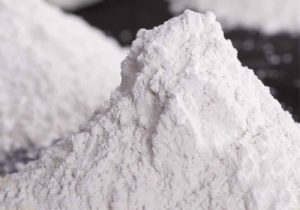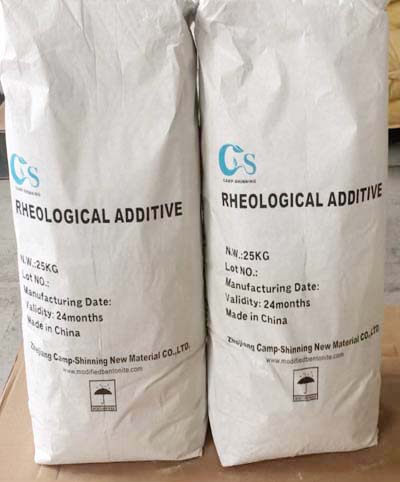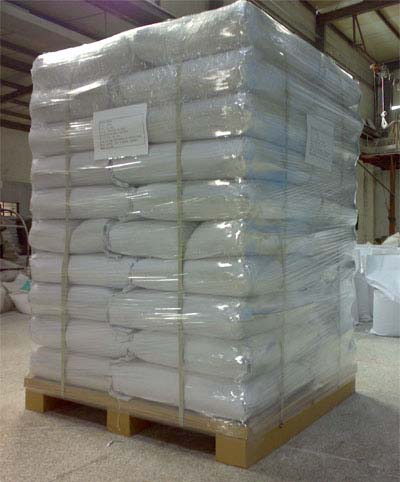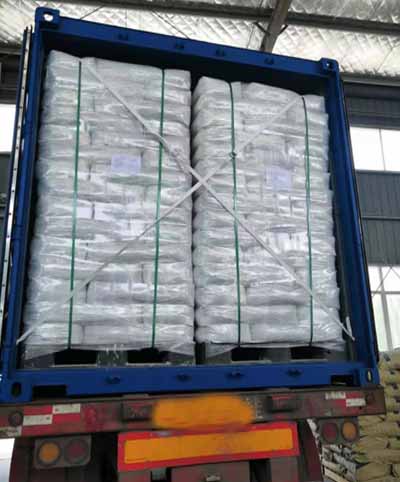
CP-992 Organophilic clay
CP-992 Organophilic Clay, the wet process improved viscosifier and gelling agent . It is a rapidly dispersing.
How to use bentonite clay? the main method is currently divided into two kinds, one is the dry powder added, the other is the pre-gel method added. As a pre-gel adding method, mainly to enhance the dispersing ability of organic bentonite. The dry powder addition is not required to add polar activator, because the dry powder addition model usually has good dispersing ability.

Organoclay Supplier / Manufacturer :
Internet address: https://www.rheologymodifiers.com/
Email address: [email protected]
Whatsapp / Wechat: +86-13185071071
Organophilic Clay Supplier / Manufacturer : How to use bentonite clay

CP-992 Organophilic Clay, the wet process improved viscosifier and gelling agent . It is a rapidly dispersing.

CP-982 Organophilic Clay is an amine treated bentonite with a moderate temperature performance.

CP-150 Organophilic Clay is a self-activating organoclay that disperses easily and performs well in diesel, low aromatic mineral oil, modified vegetable oil, and synthetic base fluid formulations.

CP-10 organoclay is a rheological additive made of organoclay. It is used in non-polar to moderately polar aliphatic and other solvent systems

CP-MPZ organoclays is an modified bentonite that is used in solvent and resin systems ranging from non-polar to highly polar.

The CP-MPS rheology modifier is a type of organo clay rheological additive that is used in solvent and resin systems ranging from non-polar to high polarity.




CP-EW Organoclay for Water Based paint. It is primarily employed in water borne paint systems,such as latex paint. So it is a good water based additive in paints,coatings,grease etc.

CP-EWS Modified bentonite It is employed in a water-borne coatings system. CP-EWS organoclay outperforms CP-EW in terms of thixotropy, transparence, and dispersion.

CP-WBS Rheology Modifier is rheological modified bentonite. It is mostly employed in water-borne systems.
Organoclay | Organophilic Clay CP-2 also named amine treated Bentonite.
In diesel oil based fluids,organophilic clay viscosifier CP-2 are used to increase carrying capacity and suspension properties, providing support for weight materials and improved cutting removal. Organophilic bentonite also aids in filter-cake formation and filtration control.
Properties
Composition Organically modified bentonite clay
Physical appearance Off white to tan free-flowing powder
Moisture content (105℃,2hr) ≤4%
Particle size (<76μm or 200mesh) ≥95%
Specific Gravity 1.6-1.8
Advantages
Effective viscosifier and gellant
Aids control of fluid loss to the formation
Increases emulsion stability
Improves cuttings carrying and hole cleaning capacity
Suspends weighting materials and other solids
Confers temperature stability to the fluid
Application
Base oil:
Diesel Oils
Crude Oils
Mineral Oils
Synthetic Oil
Viscosifying drilling Fluids:
Oil based drilling fluids
Invert emulsion fluids
Workover fluids
Completion fluids
Casing packs
Packer fluids
Spotting fluids
Package
Organoclay | Organophilic Clay CP-2 is packed in 50lb(22.7kg) or 25kg/bag or customized,multi-wall paper sacks or Kraft paper bag with PE liner or customized.
Storage
CP-2 Store in a dry, well-ventilated area with temperature of 0℃-30℃. Keep container closed. The quality guarantee period is 24 months.
Notice
The information on use is based on data which are believed reliable, but any recommendation or suggestion made is without guarantee or warranty, since the conditions of use are outside our control. All products are sold on the conditions that purchasers shall make their own tests to determine the suitability of such products for their purpose and that all risks are assumed by user. We disclaim any responsibility for damages resulting from careless or improper handling or use. Nothing herein is to be taken as permission, inducement or recommendation to practice any patented invention without a license.
Internet address: https://www.rheologicaladditive.com/ and email address: [email protected]
Whatsapp / Wechat: +86-13185071071
how to use bentonite clay
How to use bentonite clay?
If you are adding organobentonite to epoxy, polyester, or short oil alcohol resins, you may choose to use a pre-gel to promote the dispersion of the organobentonite. Our recommended formulation is 3% polar activator, 10% organobentonite, and 85% financing.
You can mix the solvent and the organobentonite first, and then after adding the polar activator, do a high speed mixing for 5 minutes so that they can mix well.
How to use bentonite clay?
When we are in oil-based mud or some complex formations, adding organic bentonite to the mud fluid can enhance the high temperature stability of organic bentonite in the mud fluid, it is especially suitable for drilling some deep wells or ultra-deep wells.
You can use our organic bentonite 250A, can make the mud has good dust carrying, wall protection, suspension and anti-leaching effect.
For the application of Organic Bentonite in grease, we still recommend you to add a polarizing agent in order to achieve your desired effect. Often acetone, methanol, ethanol, propylene carbonate or glycol ether are used as polarizing agents.
Then the steps of adding organic bentonite clay, we introduce the following:
First, heat the grease oil to about 80 ℃.
Next, add the organobentonite while stirring for about 20 minutes.
The 3rd step is to add the polar activator and then stir them for another 20 minutes or so.
The 4th step is mainly high speed grinding by milling.
The 5th step is to remove the gas and filter and package the lubricant.
We need to remind that some of the high boiling point of the lubricant can be used at high temperatures, if the use of organobentonite as a gel applied to the lubricant, even at low temperatures can still maintain good lubricity, while the gel-type lubricants have excellent color permeability and water resistance.
Organic bentonite moisture, we usually require is within 5%, and our actual control, usually within 3%.
In short, organic bentonite added to grease or oilfield drilling fluids, he can make their respective formulations to achieve good chemical stability and mechanical properties, as well as suspension properties and thixotropy.